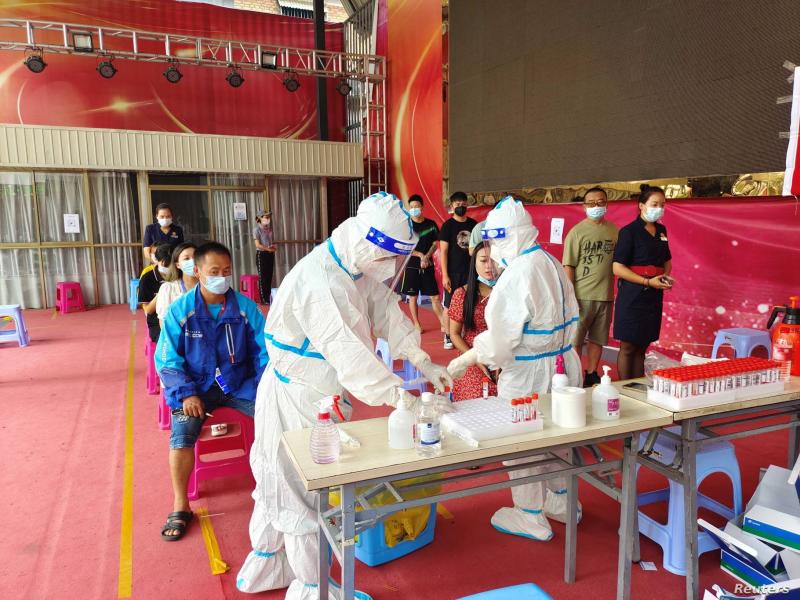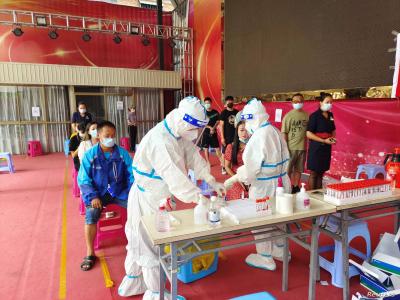The "Delta" variant of the coronavirus, first discovered in India, has become a major global concern due to its increased transmissibility compared to other strains, spreading rapidly across multiple countries. American science writer Fay Flam reported in an article published by Bloomberg News that the Delta variant represents a new horror story in the context of the pandemic, as its spread in the United States did not lead to an increase in mortality rates or hospital overcrowding. However, news of its presence overshadowed celebrations for Independence Day on July 4th.
### Contradictory Recommendations
Public health specialists have responded in confusing ways, issuing contradictory recommendations and conflicting information that seem inconsistent with scientific facts. As a result, as occurred in earlier stages of the pandemic, confusion and unnecessary anger arose. Questions such as whether vaccinated individuals should wear protective masks depend on whom the question was directed to. Opinions also differ among experts regarding whether economic life can return to normal.
Some argue that this depends on local conditions. Dr. Anthony Fauci, the White House medical advisor, stated that everyone should wear masks in Alabama, which has a low vaccination rate and a rise in infection cases. Rochelle Walensky, director of the Centers for Disease Control and Prevention (CDC), recommended mask-wearing indoors for any community with a vaccination rate below one-third. However, Los Angeles County requires vaccinated individuals to wear masks despite its relatively high vaccination rate.
### Delta in America
The Delta variant, first identified in India, is more transmissible than the highly contagious "Alpha" variant found in the UK, prompting calls for double masking in the previous spring. The Delta variant emerged as a threat around the same time public health authorities in the U.S. encouraged individuals to make their own decisions regarding COVID-19 safety rather than calling for uniform behavior standards. In May, the CDC eased its mask-wearing recommendations, with Walensky announcing that fully vaccinated individuals "can start doing the things" they had stopped doing due to the pandemic.
### Differences in Recommendations and Rules
The shift was motivated by the availability of highly effective vaccines, which appear to be effective against all forms of the coronavirus, including the Delta variant. However, the pivot towards personal responsibility also represents a political and ethical change. Thus, it is not surprising, albeit unsatisfactory, that recommendations and rules are inconsistent.
The World Health Organization (WHO) aligns with Los Angeles County in stating that vaccinated individuals should wear masks in most indoor settings, but the CDC emphasizes that decisions about mask-wearing should be left to regions, businesses, and individuals.
### Trust in Vaccine Effectiveness Against New Variants
Walensky clarified that vaccines are much more widely available in the U.S. than in most parts of the world and are used more extensively in some states than others. Thus, CDC and WHO recommendations can be said to be backed by scientific support. However, science also shows that vaccinated individuals are less likely to experience severe symptoms even if infected with the Delta variant, and they are extremely unlikely to infect others in grocery aisles.
This is why "science" by itself is not a recipe for sound public health policy. Virology and epidemiology can provide individuals with an appreciation of how severe something is, but they cannot tell them how much risk exceeds what is acceptable or which mitigation measures impose significant burdens.
Current data indicate that the risk of infection decreases by 60% to 80% after full vaccination, according to Muge Cevik, an infectious disease physician at the University of St. Andrews in the UK. This undoubtedly explains why hospitals did not become overcrowded as the Delta variant took dominance there, and why deaths did not increase.
### The Unvaccinated Are the Target
The writer questions who remains susceptible to infection? Cevik responds that primarily unvaccinated young people are at risk, along with a few vaccinated individuals in high-risk professions, such as taxi drivers, bus drivers, and those working in hospitality. The danger comes from prolonged interactions with large numbers of people in closed spaces daily.
She states that hardly any vaccinated individuals become susceptible to severe illness. Advocates for mask-wearing worldwide considered it a worthwhile strategy in 2020 when cases were rising and vaccines were not widely available, but the effectiveness of masks in that context remains poorly defined.
Two doctors who strongly advocated for mask-wearing at that time stated that it was no longer necessary in the U.S. by May 2021. Cevik noted that the primary issue related to the Delta variant will manifest in countries with low vaccination rates. The main impact in the U.S. will be on the unvaccinated, as its increased transmissibility will mean they are less likely to be indirectly protected by herd immunity.
However, in states where more than half of the population is vaccinated, and where higher rates exist among high-risk groups, experts do not expect a new wave of deaths or overcrowding in intensive care units. It remains theoretically possible for some vaccinated individuals to experience long-term complications from mild infections, or for serious cases to appear among individuals taking immune-suppressing medications. Therefore, the risk has not been eliminated. But Delta does not revert us to the situation of 2020 either.




